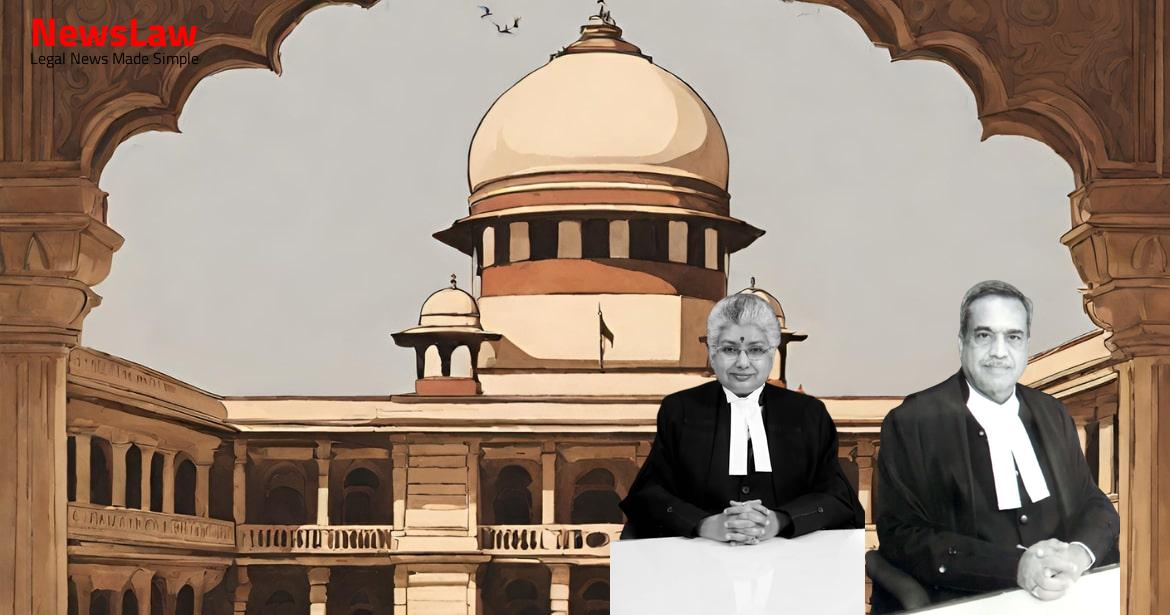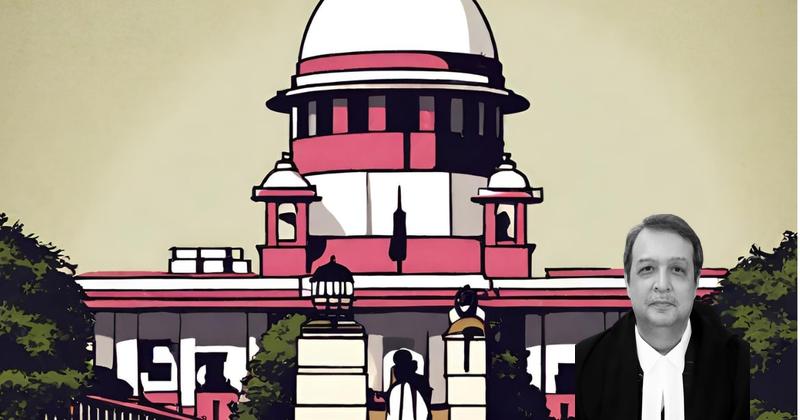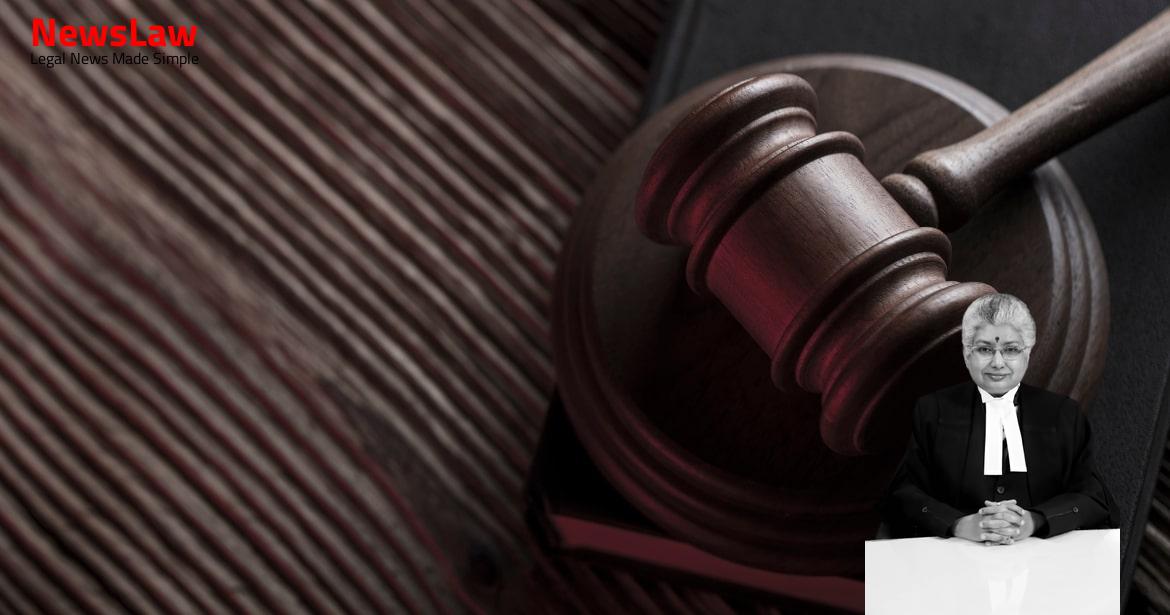Explore a detailed legal analysis of the court’s interpretation regarding an arbitrator’s authority to award interest in contracts. The case delves into the nuances of interest payments under the Arbitration Act and how specific contract clauses can impact an arbitrator’s decision. Understanding the implications of interest awards in arbitration is crucial for both parties involved in contractual disputes.
Facts
- The Division Bench of the High Court dismissed the appeal and confirmed the award of pendente lite interest and future interest on the balance due payment.
- The appellant, Union of India, filed the present appeal against the decision of the High Court.
- A contract was in place between the appellant and the respondent for three work contracts, leading to a dispute that was taken to arbitration.
- The sole arbitrator awarded an amount of Rs. 78,81,553.08, which was upheld by the learned Single Judge of the High Court.
- The Union of India preferred an appeal under Section 34 of the Arbitration & Conciliation Act, 1996.
- The appeal challenged the award on claim no.5 dated 17.01.2011 related to interest on the balance due payment.
- The arbitrator awarded pendente lite and future interest at rates of 12% and 18% respectively, excluding earnest money and security deposits.
- The matter was taken to the Division Bench through FAO(OS) No 52/2018 under Section 37 of the 1996 Act.
Also Read: Legal Analysis on Conviction Based on Sole Testimony of Prosecutrix
Arguments
- Shri Vikas Singh opposed the appeal, stating the Tehri Hydro Development Corporation Ltd. case was not applicable to the current case due to differing clauses.
- The arbitrator not being a party to the agreement does not bar them from awarding pendente lite interest.
- The High Court relied on Union of India v. M/s Pradeep Vinod Construction Co. (2017) to distinguish judgments as not discussing clause 16(2) of the GCC.
- The case of M/s Pradeep Vinod Construction Co. considered clause 16(2) and held no interest on earnest money and security deposit.
- The expressions in clause 16(2) are disjunctive and cover different situations.
- The arbitrator’s power to award interest was examined in Union of India v. Bright Power Projects (India) (2015) by a three-judge bench.
- Parties bound by the contract agreement on interest payment, as per M/s Pradeep Vinod Construction Co.
- The contract’s clause 16(2) specifically bars interest on various payments to the contractor.
- The Garg Builders case dealt with express bars on interest for money due to the contractor.
- Clause 16 of GCC pertains to earnest money and security deposits, not barring pendente lite interest.
- The principle of ejusdem generis cannot be applied to clause 16(2).
- The Kailash v. Nanhku case supports the bar on parties, not on the court’s inherent powers.
- Section 31(7)(a) of the 1996 Act shows the interest bar is on parties, not on the arbitrator.
- The arbitrator can award interest unless expressly barred, as per Raveechee and Company v. Union of India (2018).
- Jaiprakash Associates Ltd. v. Tehri Hydro Development Corporation Ltd. (2019) asserts arbitrator cannot award interest if contract prohibits it.
- The counsel for the appellant conceded that the issue in the present appeal is covered by the judgment in the case of M/s Pradeep Vinod Construction Co.
- Once a clear concession has been made, it is not open for the Union of India to raise the same issue again.
- The appellant had also claimed interest at the rate of 18% from the respondent as a counter-claim, as recorded in the Arbitral Tribunal’s award.
- The appellant cannot now deny the liability to pay interest pendente lite as claimed before the arbitrator.
Also Read: Legal Analysis on Concurrent Sentences in Drug Trafficking Cases
Analysis
- Under Section 31(7)(a) of the 1996 Act, the Arbitral Tribunal may include interest in the sum for which the award is made, unless otherwise agreed between the parties.
- The security deposit, 10% of the total contract value, may be deposited in Government Securities or recovered through percentage deduction from the Contractor’s bills.
- No interest is payable on earnest money, security deposit, or amounts due under the contract, except for Government Securities deposited as per Clause 16(1), which will accrue interest.
- The court’s interpretation of ‘money due under the contract’ is crucial in determining the arbitrator’s power to award interest.
- If the contract prohibits interest, the arbitrator cannot award pre-reference or pendente lite interest as per Section 31(7)(a) of the 1996 Act.
- Various cases have upheld the prohibition on interest payment if expressly provided in the contract, including State of Karnataka v. Shree Rameshwara Rice Mills and Sayeed Ahmed and Company v. State of Uttar Pradesh.
- The Court considered clause 17 in the case of Garg Builders, which stated that no interest would be payable on Earnest Money Deposit, Security Deposit, or any moneys due to the contractor.
- The Court discussed the power of arbitrators to award interest pendente lite and future interest based on the 1996 Act.
- It was argued that if the contract expressly prohibits the payment of interest, the arbitrator cannot grant pendente lite interest.
- The Court referenced the decision in Secretary, Irrigation Department, State of Orissa v. G.C. Roy to support the limitations on arbitrators’ power regarding interest awards.
- In the case of Bright Power Projects (India) (P) Ltd., the Court observed and held specific clauses regarding interest payments.
- The Arbitration Act 1940 and subsequent decisions were referenced to provide context on interest awards.
- The High Court’s decision to reject the claim for pendente lite interest was deemed justified based on the considerations discussed.
- The Court also highlighted the importance of specific contract clauses in determining the arbitrator’s authority to award interest.
- The rule of ejusdem generis was mentioned in the context of interpreting statutory provisions and contract clauses to limit the scope of certain terms.
- Details regarding the conditions under which an arbitrator can or cannot award interest were analyzed based on various legal precedents and statutory provisions.
- The judgment in the case of M/s Pradeep Vinod Construction Co. is not applicable as it was decided by a two-judge bench, while a contradictory view was taken in the case of Bright Power Projects (India) which was decided by a three-judge bench.
- Ambica Construction’s decision under the Arbitration Act, 1940 is not relevant to the current case under the 1996 Act.
- The clause barring interest in the present case is widely worded, and the principle of ejusdem generis is not applicable to imply a bar on pendente lite interest.
- Argument about the waiver of the arbitration agreement is discussed, and it is noted that the rule of ejusdem generis does not apply here.
- It is argued that the disputing party cannot challenge an award of interest even if it were to be granted.
- The contractor agreeing not to receive interest, including on earnest money and security deposit as per clause 16(2), restricts the power of the arbitrator to award interest.
- Clause 16 is analyzed in detail, separating the provisions for earnest money/security deposit and interest payable on them.
- Section 3(3) of the Interest Act allows parties to contract out of interest payments for debts or damages, which may be applicable in this case.
- The Full Bench’s failure to consider that damages payable for breach of contract still fall within the contract terms is noted, rejecting the argument for the Arbitral Tribunal to award interest.
- The validity of Clause 17 of the Contract under the Indian Contract Act, 1872 is affirmed.
- The application of ejusdem generis to interpret ‘amounts payable to the contractor under the contract’ is deemed not suitable as per the wording of the agreement.
- The submission that Arbitrator can independently award interest outside of clause 16(2) is dismissed as lacking substance.
- Estoppel cannot be claimed against the law.
- The Arbitrator erred in awarding pendente lite and future interest to the contractor.
- The High Court confirmed the erroneous award by the Arbitrator.
- The appeal succeeded against the judgment and orders passed by the High Court and the Arbitral Tribunal.
Also Read: Legal Jurisdiction and Award Finality in Arbitration Dispute
Decision
- Appeal allowed but no order as to costs.
- No entitlement to interest pendente lite or future interest as per clause 16(2) of the GCC.
Case Title: UNION OF INDIA Vs. MANRAJ ENTERPRISES (2021 INSC 754)
Case Number: C.A. No.-006592-006592 / 2021



